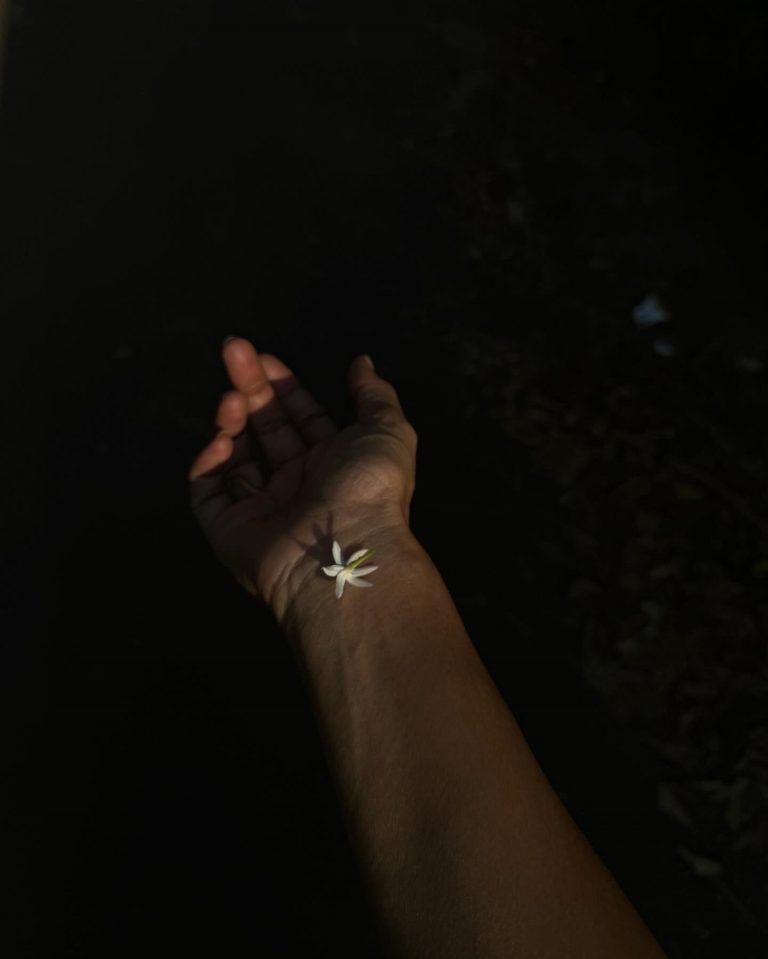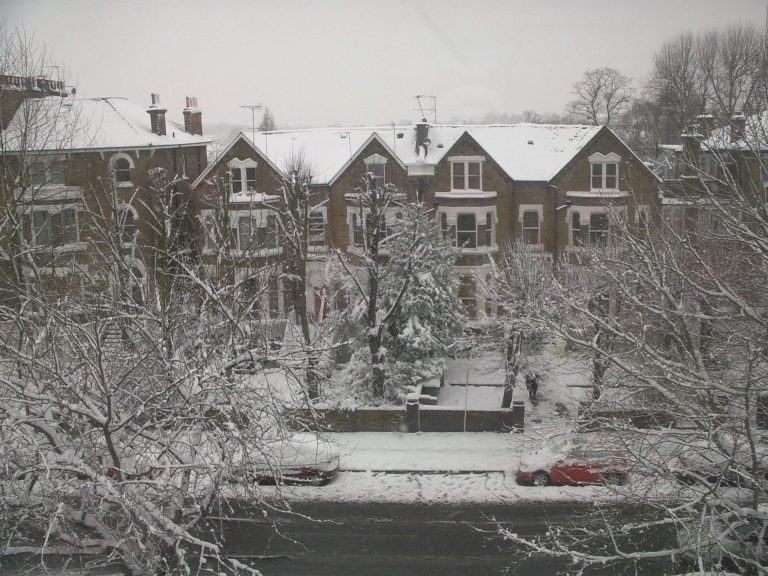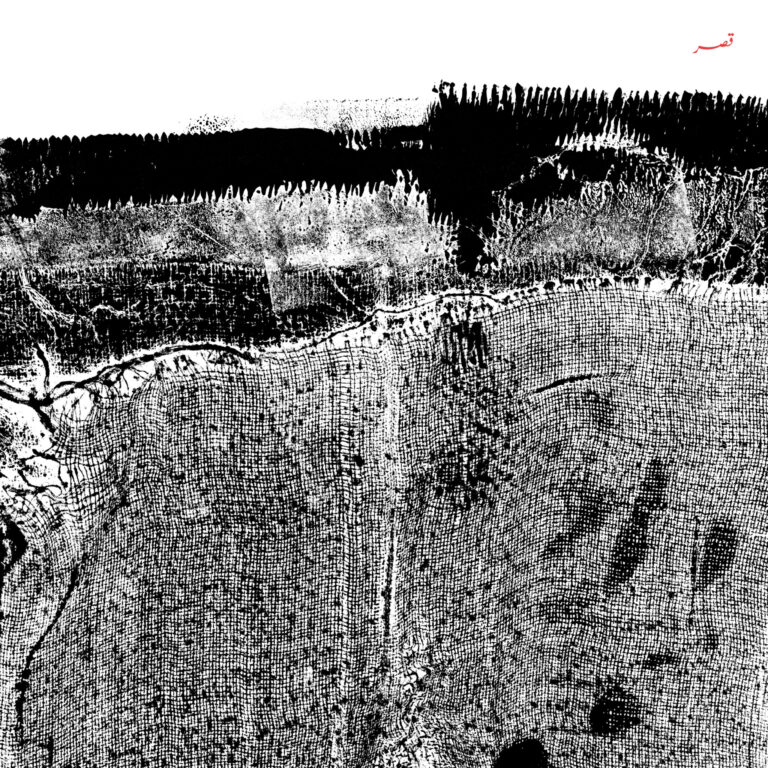discovering narratives 02: pelva naik and anuradha parikh
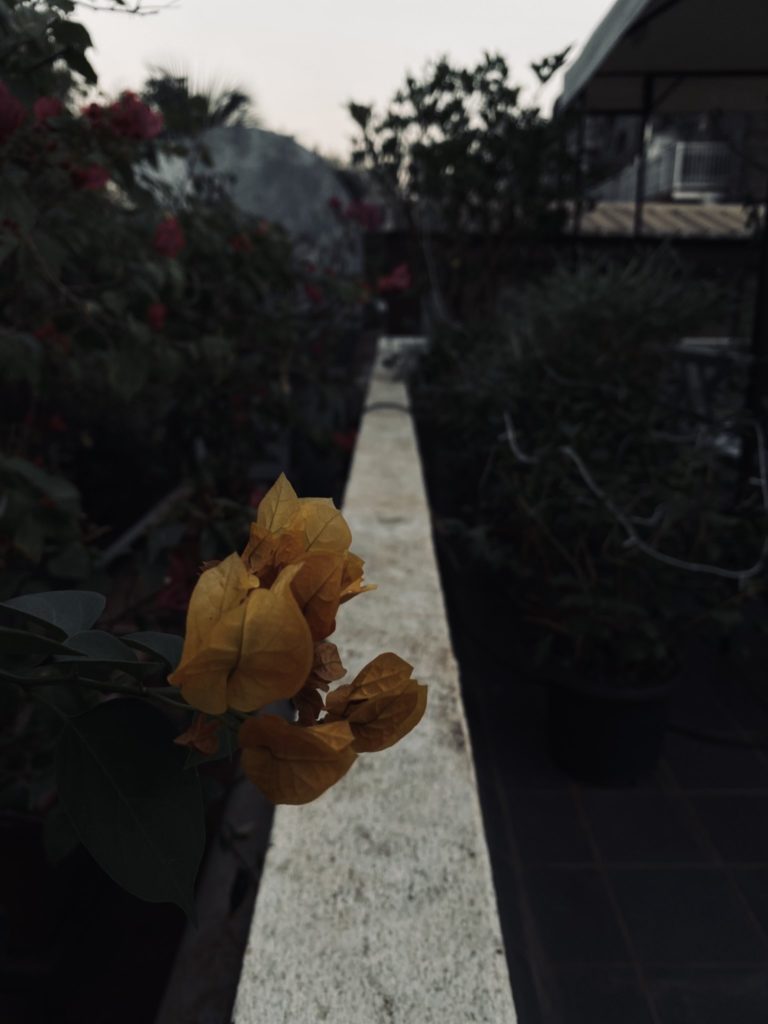
Discovering Narratives is a recurring series of G5A Imprint, where we bring together practitioners to have contemplative, quiet, in-depth, and organic conversations that begin with a singular point: a book, a painting, or a piece of music in the hope that this will allow both of them to unpack the layers of their work and approach.
What defines an art form? Its legacy, its contemporary relevance? The artists or everything intertwining – one breathing into another?
On February 14th, 2021, G5A opened its terrace for the first Morning Riyaaz – an early morning gathering where, Dhrupad vocalist Pelva Naik, allowed us to join her in her practice. It became a meditative space for listening, taking a pause, and quieting our own thoughts, as we let Pelva’s soulful renditions wash us over.
This wonderful engagement was followed by an intimate and insightful conversation between Anuradha Parikh, our Founder and Artistic Director and Pelva. As they flowed between sharing personal experiences, to lessons from music, and insights into the arts ecosystem, one couldn’t help but witness the sensitivity, incisiveness, and compassion necessary for the arts to flourish and for the artists to find their authentic selves.
This conversation now takes the form of the second edition of Discovering Narratives.
Anuradha:
As you know this is the first formal physical performance we’ve done with an audience since lockdown. Pelva, this was fabulous! I really want to thank you for coming on board with this idea of Morning Riyaaz. Like you mentioned earlier, your family created an environment where there was art and music and it was similar for me. I recall many early morning baithaks or sometimes baithaks that started through the night and ended up really bringing in the dawn. This is something that we wanted to do at G5A for a while and I’m really happy that, first of all after lockdown, it’s been wonderful to come together again in this way. And in many ways, beginning with you and Dhrupad, for me, is quite significant.
Let me ask you how it’s been for you? And if you can share a little bit about what you’ve been doing in the lockdown?
Pelva:
It’s been wonderful, first of all to be in an open space and sing, because that’s something that I’ve been missing. When I was offered a concert which was on a terrace, that too of a space which I’ve been a long admirer of – that was something that I was quite happy to take on and it has been beautiful this morning. And that’s what I was saying earlier – I like the term ‘morning riyaaz’. Especially because I’ve always felt that the performance has always been an extension of riyaaz. It’s a different kind of riyaaz that takes place on stage and that’s something that I did experience today – just informal, with a few people around, and that experience is something that we really strive for – the close proximity, the baithak style of performance. That’s something that I think I was very fortunate to have today, and space, in terms of space – it makes a huge difference because I really believe that spaces have energies – it’s like music or people, so to have a space like this was very very wonderful.
Anuradha:
How lovely!
This is obviously a much longer question and answer –but how would you describe your sense of what Dhrupad is?
Pelva:
I think what I have been exploring recently in Dhrupad, is what is it that identifies yourself with the genre. Or is it the other way around? Or the genre is identified with the person who is practicing it. So that’s something I have been exploring in a larger context where Dhrupad is concerned. I really find Dhrupad to be a very universal approach. I usually like to explain, when someone asks me, what Dhrupad is: it’s a south asian subcontinent’s music, you know, which has been handed down from generation to generation. Rather than calling it ‘classical music’ because that’s something I’m in conflict with. To use the term classical; to use the term ancient music. I feel Dhrupad is so much with its time so why don’t we call it contemporary –something that is alive, and you know continuously passed on. So I would say it’s a culture. It has been cultivated. It’s a musical form that can be related to a culture –something where personal feeling has an immense space to be explored. So it’s very personal. To realise classical music as personal music is something that I’m really exploring with myself and with my students, and the audiences that I get to engage with. To discover and realise, again and again, the fact that any art form ultimately is an authentic expression. How would you bring it closer to as much honesty as possible, as much personal truth? I could say Dhrupad is a universal timeless entity, which has immense freedom within the discipline.
Anuradha:
I noticed that most of the time when you were performing, your eyes were shut. Do you find that you are able to really connect with the Sur, with the elemental notion of music and sound? Do you lose yourself within that, when you’re performing?
Pelva:
Yes, absolutely. It’s very emotive –the process is very emotive for me. I was trying to really, almost, dive deep into the layers and layers of sound and tonation, so the eyes shut naturally and no matter how much I try, I lose contact. But I think somehow the connection still takes place, with whoever is listening.
Anuradha:
That’s interesting, yes. I was thinking about that because today one finds a lot of artists who make that direct connection with the audience, which is also wonderful, without compromising the art. I have also seen a few artists, like Ustad Ali Akbar Khan – when he would perform, I remember, it almost felt like he was so immersed within himself, that it did not ultimately matter whether, as audiences, we were there or not, and yet that did not alienate us, as audiences, either. And this is very personal, and I do feel that music, like so many other art forms, is an opportunity or a pathway to a certain sense of self and spirituality.
Pelva:
Yes, and also seeing something together – something that the audience and the musician, being two different entities, are all seeing something together which is in the centre of our periphery, and that’s the beauty of it, and that’s what connects it, rather than the musician being at the centre. So that’s something that takes place with growth.
Anuradha:
Growth, lovely I like that! You have said it very gently but I think sometimes it’s very important to call it out. I think what’s at the centre is critical or rather who is at the centre or rather who’s not, and I think when you say that the music or the art is at the centre, that’s really important for all of us to keep in mind. That’s something that I have been thinking as well, so where is the ego then?
Pelva:
I don’t think it has any place in a set-up like that. But then it reveals itself, it gets the chance to reveal itself – if that makes any sense.
Anuradha:
What is the role of ego and the artist and the art? All these relationships and positions. There’s another artist who said that “If there is ego, there cannot be creativity.”
Pelva:
I completely agree with that. But it depends on what you mean by ego also? If it’s a sense of self then it’s important to have that sense of self – which is seeing or being attentive towards that form or that entity that is in front of you, and you are an instrument. But apart from that, I think it needs to dissolve especially when it is about art, when it comes to sensitivity. My teacher also used to say that when you are trying, or showing, or revealing an aalap, you are actually just suggesting, you are showing something which is already there. The beauty is already there, you are not creating that beauty. Something which has been there –you are just opening it up and saying, look this is so beautiful; look this is so honest. So in that process, I think the ego or vanity does not have any space to exist.
Anuradha:
I’m thinking about the notion of freedom and identity. It’s a complex, fragile thing I suppose. So how do we negotiate that? Keeping that unique position, and yet dissolving?
Pelva:
Yes, it’s a very tricky process, I would say. But I think each person needs to go through that, especially in today’s time. Because identifying something with a certain class or clan or social strata is problematic, I feel. But at the same time, roots are there, some things have grown from a certain social, political, and cultural ground. So how do you really define something as Indian or how do you define something as classical or folk or male or female? Those are the questions that really need to be raised in whatever form it is, whether it’s Dhrupad or any other genre. That is something I spend my mind and energy on. Personally, also, I’ve questioned the idioms of women: what is it to be a professional and non professional, or a female Dhrupad vocalist? You never say that to a man, that he is a male Dhrupad vocalist. But I’m always called that: she’s a female Dhrupad vocalist. Small things like that –or Indian musician or this is an Indian art form. Today, a lot of the art forms have been moved into religion and that really bothers me, very much. To associate an art form or an expression with something like that is problematic.
Anuradha:
And the kind of manipulations that occur. What I often feel is that some of these changes happen without us even realising it. So they may be fine changes or really small changes, but the final impact is very large. It’s sort of corrosive, a slow process of corrosion and sometimes one wonders what the starting point was and where have we come to? But I think, firstly, regarding the woman vocalist, I think you will have to bear the cross for a while, but it’s dissolving.
Pelva:
Yes, it is dissolving, in younger people it’s been amazing. In today’s time, it’s in the air, each person’s imagination and the younger ones are really questioning.
Anuradha:
What do you think created this kind of limitation earlier? Do you think it was part of the mandate that this is only meant for the male? So how did that happen?
Pelva:
Patriarchy.
Also, social obligation, certain kinds of audiences that were right at that time, which were feudal, which were of a certain demand, the demand for a certain kind of people on stage, but the root of it is patriarchy. I think personal choice has become much more free now, which was not the case earlier. Also today’s generation, we are quite isolated because of the internet or because of mobility. It’s freer. You don’t have to depend on family to go from one place to another, travelling – things like that have made younger people be on their own, alone, question, or be on their phone and look at youtube videos and digest information, instead of your grandfather or teacher telling you that you have to listen to this or listen to that. This kind of freedom, which has its own negative implications as well, has given us a certain kind of decision-making or choice that is free.
Anuradha:
Given the notion of discovering this freedom or younger people discovering this freedom, do you feel that there is a balance or responsibility there? Or is it going to take a bit of a cycle–
Pelva:
Yes, it is tricky because there can be completely irresponsible stature. I think it’s something that needs to be taken care of, and talked about, and we need to question ourselves. Also hard work is critical. If you work hard towards something, then you do discover that you can’t just be irresponsible about certain statements or certain ways of being.
Anuradha:
What we’re hoping to do, Pelva, is to broaden this scope for more people to have more of this quiet time to themselves, with music and art like this. And to really begin to think about it responsibly and to, therefore, build an ecosystem that then believes in hard work, rigor, and a certain kind of dedication, almost, to art. And I do hope we can continue working together. It’s been wonderful to have you. Thank you.
Pelva:
Thank you so much! It’s been lovely too.
Watch Pelva Naik’s full Morning Riyaaz performance here.
